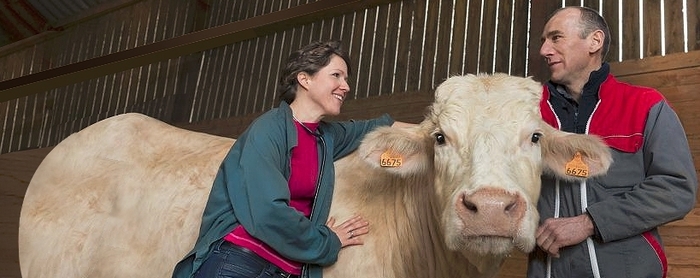Farmers should protect their cattle from four major parasites in the run-up to housing to prevent costly production losses and welfare issues, is the advice this autumn.
Responsible Animal Medicines Advisor (RAMA) Mark Pass from Beeston Animal Health, says there are at least four major parasites farmers need to manage at housing. These include:
- Gutworms, particularly Ostertagia
- Lungworm
- Fluke
Failure to control these at housing could see significant production losses from reduced weight gain, fertility issues, irreversible lung damage, increased susceptibility to disease and even death, says Mr Pass.
“At housing, you are bringing together animals and placing them in close proximity with shared airspace, which aids disease transmission. It can also be a stressful time due to the change in housing, diet and mixing of groups.
“If you think about managing parasites now, it will ease the pressure on stock at housing and help ensure they are as productive as they can be,” he said.
Mr Pass said when it comes to treatment options, farmers should work with their animal health advisors to ensure they are using the most appropriate product that is treating all the parasites present as well as the different larval stages.
“A combination product that contains moxidectin and triclabendazole such as CYDECTIN® TriclaMox® Pour-On is a useful product when there is a mixed parasite burden. This will treat gutworms, lungworm, fluke and lice and has a rainfast guarantee meaning it can be applied in wet conditions.
However, Mr Pass says for adequate lice protection all cattle in the housing group must be treated.
“Other products are available to treat parasites as single actives to target either fluke or worms, or in combination to treat for mixed infections. It’s important to consider which one is best for your herd and offering the most appropriate protection. Not all offer persistent protection or cover all larval stages, so further treatments after housing may be necessary,” he added.
Zoetis Vet Ally Anderson says all animals that have had a grazing season will be at risk of worms and may require worm control at housing.
“Your animal health advisor will be able to give you the best advice of which products to choose, CYDECTIN TriclaMox Pour-On is one option. It contains moxidectin and triclabendazole in a convenient rain fast pour on formulation. The moxidectin will treat for stomach worms as well as controlling chewing and sucking lice. The triclabendazole gives a good spectrum of activity against late immature and adult fluke”,


